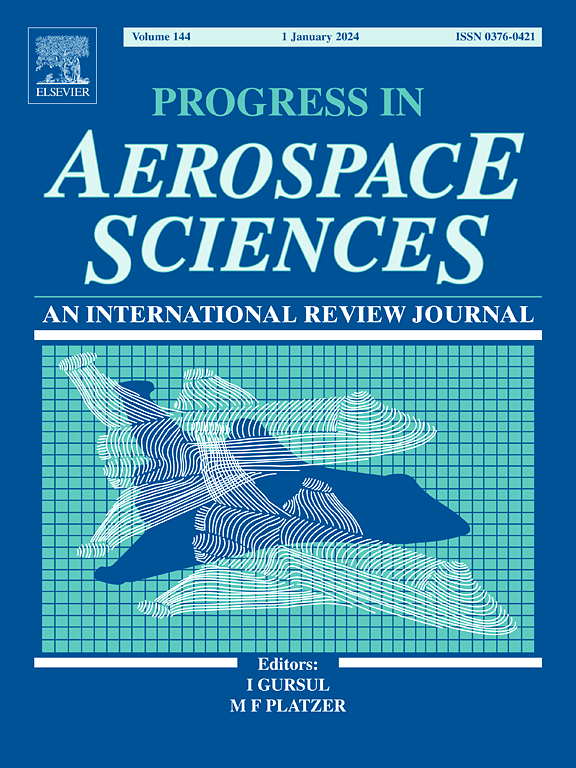Technical and economic assessment of cryogenic fuels for future aviation
IF 11.5
1区 工程技术
Q1 ENGINEERING, AEROSPACE
引用次数: 0
Abstract
The aviation industry faces the challenge of reducing its environmental impact while maintaining economic competitiveness. This study presents an extensive review of cryogenic fuels, specifically Liquefied Natural Gas (LNG) and hydrogen/liquified hydrogen (LH2), along with their renewable counterparts, as potential alternatives to conventional fuels and Sustainable Aviation Fuels (SAFs). The study examines fuel properties, comparing performance metrics and environmental consequences with a focus on payload capacity, operational range, and aircraft design, including necessary fuel tank specifications for cryogenic fuels. Additionally, this paper delves into the production, transportation, and refueling processes for LNG, hydrogen, and their renewable equivalents, exploring the challenges, opportunities, and infrastructure requirements associated with each fuel type. The emissions generated by these fuels are thoroughly assessed to highlight their potential in mitigating the aviation industry's contribution to climate change, considering their entire life cycle. Moreover, the study also investigates the economic implications of adopting cryogenic and renewable fuels, encompassing production costs, Direct Operating Costs (DOC) and the impact on flight ticket prices. This comprehensive study aims to provide valuable insights into the feasibility and long-term viability of integrating these innovative fuel sources into the aviation sector, guiding the industry toward a more sustainable future.
未来航空低温燃料的技术经济评价
航空业面临着在保持经济竞争力的同时减少对环境影响的挑战。本研究对低温燃料,特别是液化天然气(LNG)和氢气/液化氢(LH2),以及可再生燃料,作为传统燃料和可持续航空燃料(SAFs)的潜在替代品进行了广泛评述。该研究考察了燃料特性,比较了性能指标和环境后果,重点关注有效载荷能力、运行范围和飞机设计,包括低温燃料所需的燃料箱规格。此外,本文还深入研究了液化天然气、氢气及其可再生燃料的生产、运输和加注过程,探讨了与每种燃料相关的挑战、机遇和基础设施要求。考虑到这些燃料的整个生命周期,本文对其产生的排放量进行了全面评估,以突出其在减轻航空业对气候变化的影响方面的潜力。此外,研究还调查了采用低温燃料和可再生燃料的经济影响,包括生产成本、直接运营成本(DOC)以及对机票价格的影响。这项综合研究旨在为航空业整合这些创新燃料来源的可行性和长期可行性提供有价值的见解,引导航空业走向更加可持续发展的未来。
本文章由计算机程序翻译,如有差异,请以英文原文为准。
求助全文
约1分钟内获得全文
求助全文
来源期刊

Progress in Aerospace Sciences
工程技术-工程:宇航
CiteScore
20.20
自引率
3.10%
发文量
41
审稿时长
5 months
期刊介绍:
"Progress in Aerospace Sciences" is a prestigious international review journal focusing on research in aerospace sciences and its applications in research organizations, industry, and universities. The journal aims to appeal to a wide range of readers and provide valuable information.
The primary content of the journal consists of specially commissioned review articles. These articles serve to collate the latest advancements in the expansive field of aerospace sciences. Unlike other journals, there are no restrictions on the length of papers. Authors are encouraged to furnish specialist readers with a clear and concise summary of recent work, while also providing enough detail for general aerospace readers to stay updated on developments in fields beyond their own expertise.
 求助内容:
求助内容: 应助结果提醒方式:
应助结果提醒方式:


